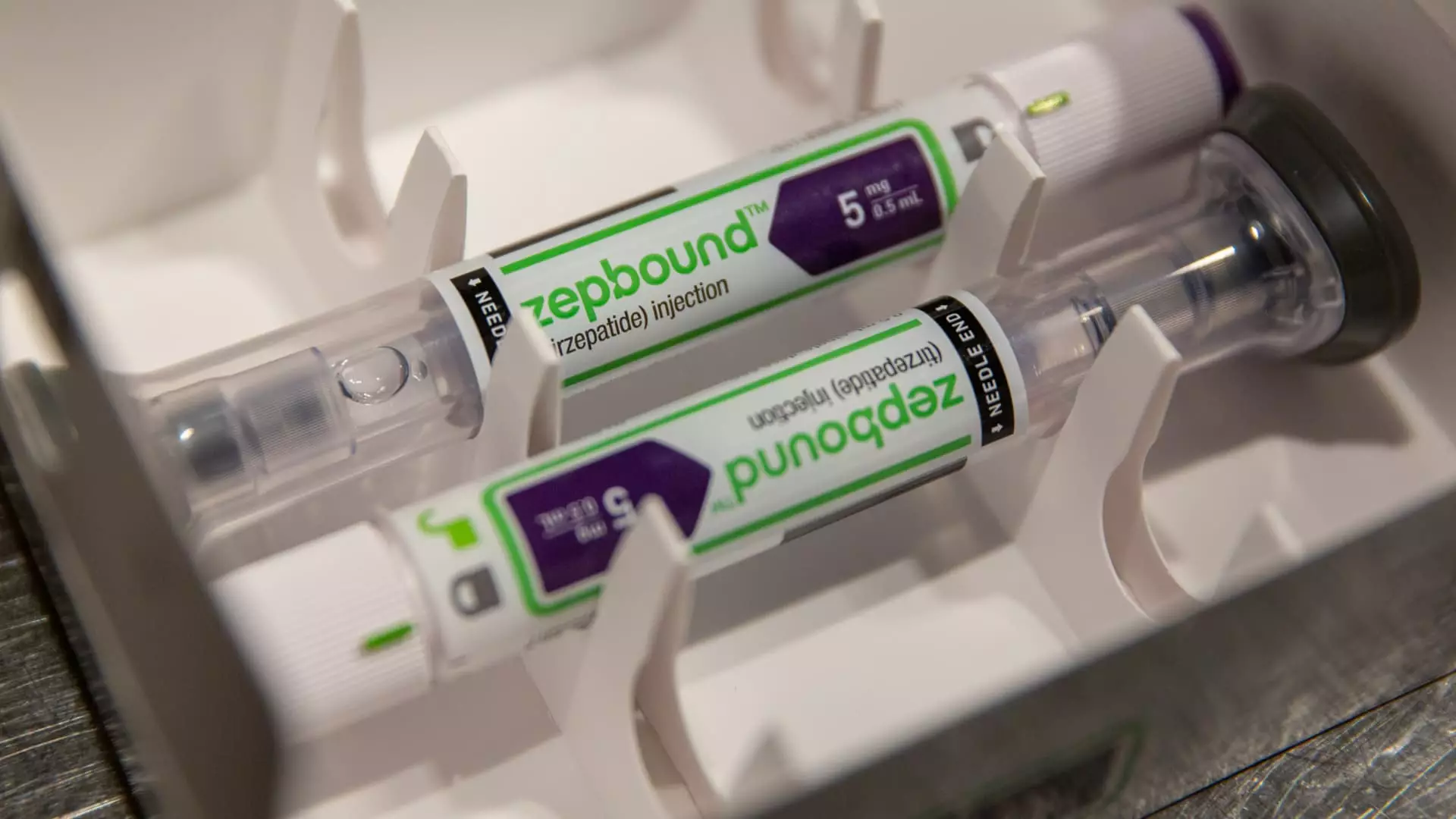Eli Lilly recently released data from a late-stage trial showcasing the benefits of their weight loss drug, Zepbound, in patients suffering from heart failure and obesity. This study adds to the growing evidence that GLP-1 drugs, like Zepbound, have various health benefits beyond weight loss and blood sugar regulation, potentially leading to broader insurance coverage for these treatments.
The trial revealed that patients who took Zepbound were 38% less likely to be hospitalized or die due to heart complications compared to those who received a placebo. Additionally, these patients were less likely to require an increase in their heart failure medication. Zepbound also significantly improved heart failure symptoms and physical limitations, providing a promising outlook for individuals with heart failure and obesity.
The phase three trial followed over 700 patients with heart failure with preserved ejection fraction (HFpEF) and obesity, with some patients also having diabetes. HFpEF occurs when the heart is unable to pump enough blood to meet the body’s needs, leading to a high burden of symptoms and physical limitations. These symptoms include fatigue, shortness of breath, and a reduced ability to exercise.
In the United States, approximately 6.7 million adults aged 20 and above are affected by heart failure. Eli Lilly estimates that HFpEF accounts for nearly half of all heart failure cases, with almost 60% of impacted patients also having obesity. This demonstrates the pressing need for effective treatments like Zepbound to address the complexities of heart failure in this population.
Safety Profile
The safety data on Zepbound from the trial aligned with previous studies of the drug. The most common side effects reported were gastrointestinal, such as nausea and diarrhea, and were typically mild to moderate in severity. This reinforces the overall safety profile of Zepbound for use in patients with heart failure and obesity.
Future Implications
Eli Lilly plans to submit the results of the trial to regulatory agencies in the U.S. and other regions, with hopes of expanding the approval and accessibility of Zepbound for patients in need. This development comes at a time when competitors like Novo Nordisk are also advancing their weight loss drugs for similar indications, highlighting the evolving landscape of treatment options for these conditions.
The findings from Eli Lilly’s trial of Zepbound in patients with heart failure and obesity present a significant step forward in addressing the multifaceted challenges faced by this population. With promising results in improving heart failure symptoms and reducing hospitalization rates, Zepbound holds great potential for transforming the management of heart failure in patients with obesity. Further research and regulatory approvals will be crucial in bringing this innovative treatment to those in need.


Leave a Reply